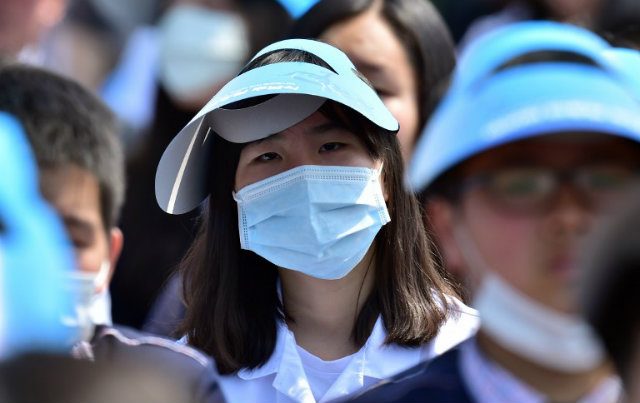SUMMARY
This is AI generated summarization, which may have errors. For context, always refer to the full article.

MANILA, Philippines – The Philippines should tightly screen tourists from South Korea after 6 people died there due to the Middle East Respiratory Syndrome (MERS), a lawmaker said.
“The large numbers of South Koreans coming to the Philippines as tourists and as students should be reason enough for the government to adapt stringent measure to prevent MERS from infecting our people,” Valenzuela 1st District Representative Sherwin Gatchalian said on Monday, June 8.
Gatchalian cited statistics from South Korea’s Ministry of Foreign Affairs and Trade that, as of 2013, the number of Koreans in the Philippines was at 88,102 – 33,267 of them were in Metro Manila. “The areas of highest concentration are Quezon City (6,655), Manila proper (6,104) and Makati (5,643).”
Noting that students come to the Philippines for short-term courses in the English language, the congressman said: “As of March 2011, 26,823 Korean students held special study permits to enroll in short term courses. According to the Philippine-Korean Cultural Center in Seoul, over 1,500 Koreans under 20 years old arrive in the Philippines every month to study English.”
Learn from poor Ebola response
Gatchalian said the Philippines’ Department of Health (DOH) “should learn from their poor screening of passengers” in 2014 as a precaution against the deadly Ebola virus.
He noted the following shortcomings back then:
- The DOH “only made passengers fill out a small, colored yellow one-page questionnaire regarding how they feel and if they have symptoms.”
- Airport screeners “did not even wear protective equipment and did not have a temperature-measuring device.”
- There was also “a notable absence of medical professionals in the receiving area.”
Gatchalian said: “This time, the DOH cannot be lax in doing their job. After all, it is their responsibility to look after the health of their ‘bosses.’ There is no excuse in not doing their duty to the public. Imagine what would happen if an outbreak affects workers and professionals; it would ultimately disrupt the economy.”
A Filipina nurse already tested positive for MERS in February.
8 precautionary measures
Gatchalian’s call came as South Korea, on Monday, recorded its 6th death and biggest single-day jump in MERS infections, with 23 new cases in the largest outbreak of the potentially deadly virus outside Saudi Arabia.
MERS is considered a deadlier but less infectious cousin of Severe Acute Respiratory Syndrome, which killed hundreds of people when it appeared in Asia in 2003. (READ: FAST FACTS: The MERS Coronavirus)
Responding to the threat of MERS, the Philippine Embassy in South Korea advised the following precautionary measures:
- “Practice proper hand hygiene always, by washing your hands with soap or rubbing them with alcohol before and after eating; before and after handling, cooking, and preparing food; after coughing, sneezing, and using the toilets; and after touching animals.”
- “Practice proper cough etiquette by covering your mouth and nose while sneezing or coughing. Use a facial tissue when coughing or sneezing, and cover your mouth and nose with it. Dispose of the tissue in a waste basket.”
- “Avoid contact with farm and domesticated animals, including camels.”
- “Avoid contact with sick or infected with MERS-CoV. If you have respiratory illness, stay home and wear a surgical mask to protect you family members.”
- “If you are a health worker, strictly follow infection control protocols in your work.”
- “Visit your doctor, a hospital, or health facility immediately if symptoms of MERS-CoV, including persistent coughing, manifest themselves.”
- “If you were in close contact with a confirmed MERS-CoV patient, comply with local health regulations and postpone any trip abroad until after test results are negative.”
- Practice healthy habits such as regular exercise, balanced and nutritional diet, and adequate sleep of at least 8 hours, as it would help strengthen the body’s immunity.”
– with reports from Agence France-Presse/Rappler.com
Add a comment
How does this make you feel?
There are no comments yet. Add your comment to start the conversation.